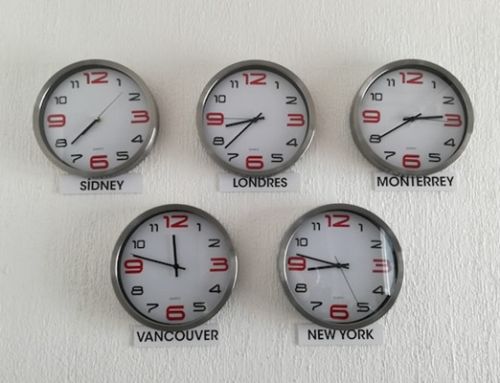Political and social upheaval around the globe is having a surprising effect on Millennials’ tendency to job-hop. Millennials have to date shown no faith in the concept of loyalty and flirted with a string of jobs to climb their way up the career ladder. As commentators, we are still writing about Millennial’s obsession with job hopping. But, could there be signs this obsession is coming to an end?
Also read: Should We Stop Making a Big Deal about Millennials?
According to Deloitte’s Millennial Survey 2017, Millennials indicated they are less likely to leave the security of their jobs than in previous years. Millennials are concerned about a large range of global issues. They currently have a generally pessimistic view on economic and social progress. The uncertainty formed around Brexit is one source of anxiety. Automation is another.
This anxiety and uncertainty are driving a newfound desire for greater stability at work. This is good news for employers who in recent years have struggled to hang on to talent. Here’s a quick reminder of who Millennials are and what businesses can do to capitalize on Millennials’ U-turn on loyalty at work.
Who are Millennials?
Millennials are one of the largest generations in history. Born between 1980 and 2000, the Millennial generation has grown up in a time of rapid change. These are truly the generation of the digital age. They have been reluctant to enter the housing market and they care about social issues. They shop differently and they want different things (experiences and sharing, rather than ownership). They’re also committed to good health.
How businesses can develop loyalty from Millennials
Millennials are a different breed for generations before when it comes to the world of work. But we have judged this generation wrongly if we pigeon-hole them as having no respect for loyalty in the workplace. As businesses, we need to reframe our thinking on loyalty and create a working environment that Millennials want to be in. Here’s how:
1. Offer flexible working
Millennials work differently to any previous generations. They are comfortable with digital technology and they know when and how they work best. They also value work-life balance. Millennials want flexible work schedules and studies indicate that a significant proportion of millennials believe that flexible working makes them more productive.
Businesses can support flexible working by offering the following:
- The opportunity to work from home
- Flexible hours or part-time work
- Flexibility with schedule, based on core hours and flexible start and finish times
- Freelance work as self-employed individuals
Flexible work schedules promote a healthy work-life balance, but they need to be backed by a trusting relationship between manager and employee. Task management systems and shift scheduling software can help to keep projects on track and give reassurance to jittery managers that the work is being done.
2. Build trust
Trust is at the core of any healthy relationship, both personal and professional. Showing that you care as an employer is fundamental for building trust with employees. To build trust:
- Give authentic praise when it is due
- Avoid toxic office gossip
- Share information and embrace reverse mentoring
- Foster open communication and transparency
- Check-in regularly with feedback
- Demonstrate accountability
3. Create a robust CSR policy
Millennials see the workplace as somewhere they can make a difference and have an impact on the social issues they care about. Millennials are renowned for seeking out employment with businesses who have a social conscience and robust Corporate Social Responsibility policies.
Also read: How (not) to Engage Millennials
Millennials are passionate and respond well to a sense of fulfillment at work. Millennials want to make the world a better place and robust CSR policies feed that sense of purpose.
4. Provide opportunities for growth
One of the factors behind Millennials’ propensity for job-hopping is in their devotion to career loyalty (not the same as employer loyalty). Millennials are driven to succeed without the tethered sense of loyalty of previous generations, so they happily moved around to further that goal.
What can employers do about it? Commitment is a two-way thing. Providing opportunities for growth is more likely to create a culture where loyalty can blossom.
5. Keep benefits and pay in line with progress
While Millennials do appear to place purpose ahead of pay, they are more than happy to sack off employers and job-hop to climb the pay scale. To ensure your prized Millennials aren’t tempted into chasing pay rises elsewhere, step up the benefits and increase pay in line with the competition when appropriate.
Millennials will make up 75 percent of the workplace in the next 10 years. If businesses are serious about their future success, they will need to respond to Millennials’ needs and build workplaces Millennials thrive in.
Image via Pexels.com






Leave A Comment